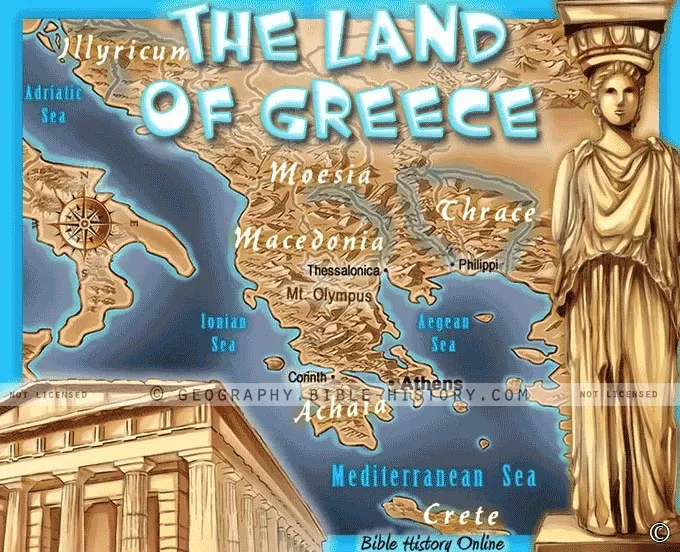Greece is an ancient country that is well-known for its contributions to philosophy, art, and democracy. It is also frequently mentioned in the Bible.
Greece was home to several powerful city-states, including Athens and Sparta, that controlled much of the Mediterranean world during the 5th and 4th centuries BC. The Greeks had a rich cultural heritage that included mythology, literature, and art.
In the New Testament, Greece is mentioned several times, and its language, Greek, was used to write the majority of the New Testament books. For example, in Acts 17:16-17, it is written, "Now while Paul waited for them at Athens, his spirit was stirred in him, when he saw the city wholly given to idolatry. Therefore disputed he in the synagogue with the Jews, and with the devout persons, and in the market daily with them that met with him."
Here, we see that Paul, one of the most significant figures in the early Christian church, visited Athens and preached to the people there. He saw the many statues of Greek gods and goddesses and was disturbed by the city's devotion to them. Paul's message was that there was only one true God, and he preached this message throughout Greece and beyond.
Learning about the history and culture of Greece can help us better understand the context of many stories in the Bible and appreciate the richness of our faith's heritage. We can also be reminded of the importance of critical thinking and seeking knowledge, as exemplified by the ancient Greek philosophers, who were known for their love of wisdom and intellectual curiosity. By studying the ancient Greeks, we can gain a deeper appreciation of the complexities of the world God has created and the vast diversity of the people he loves.
